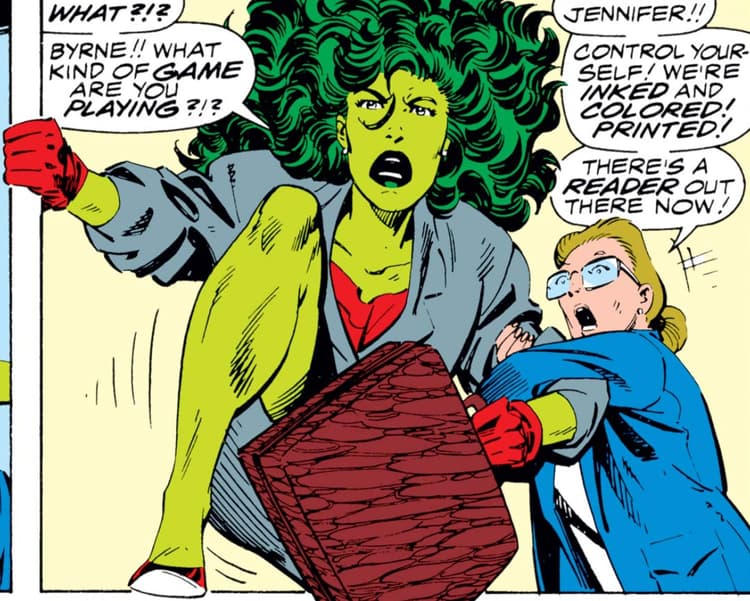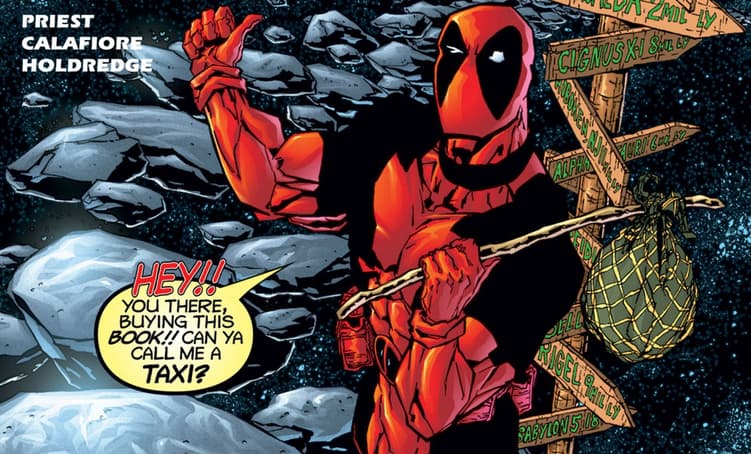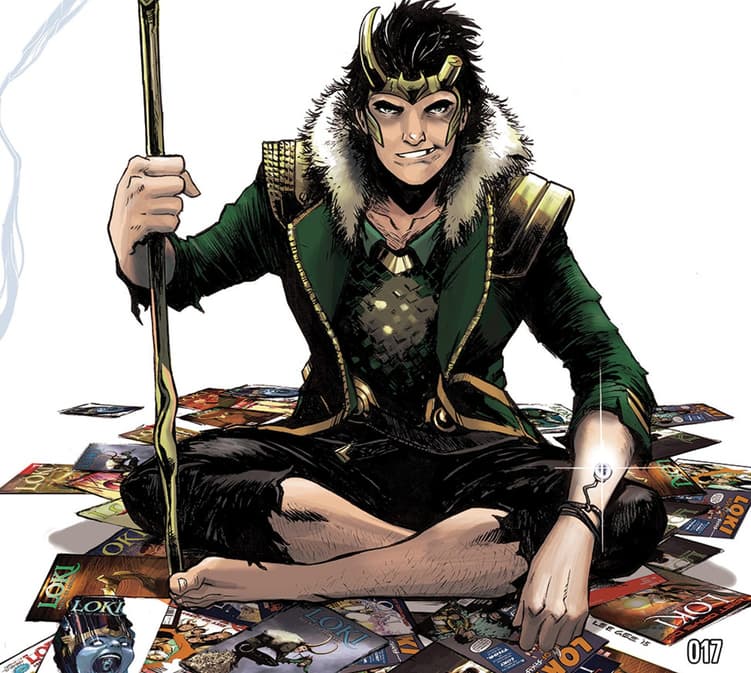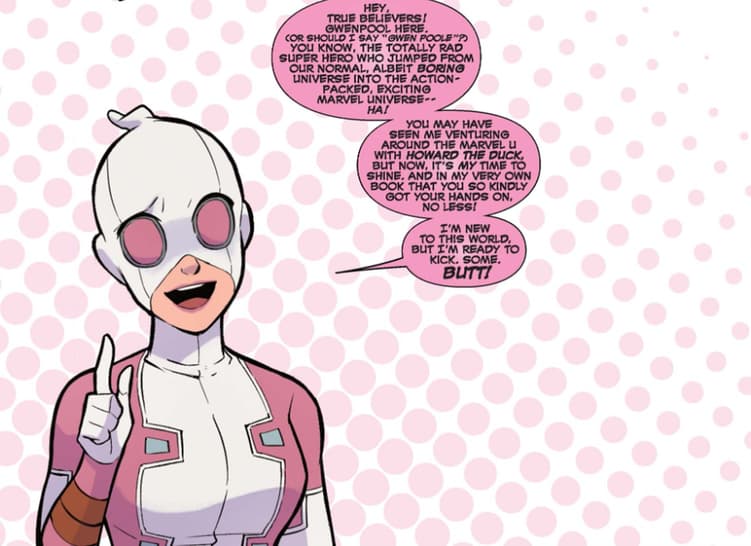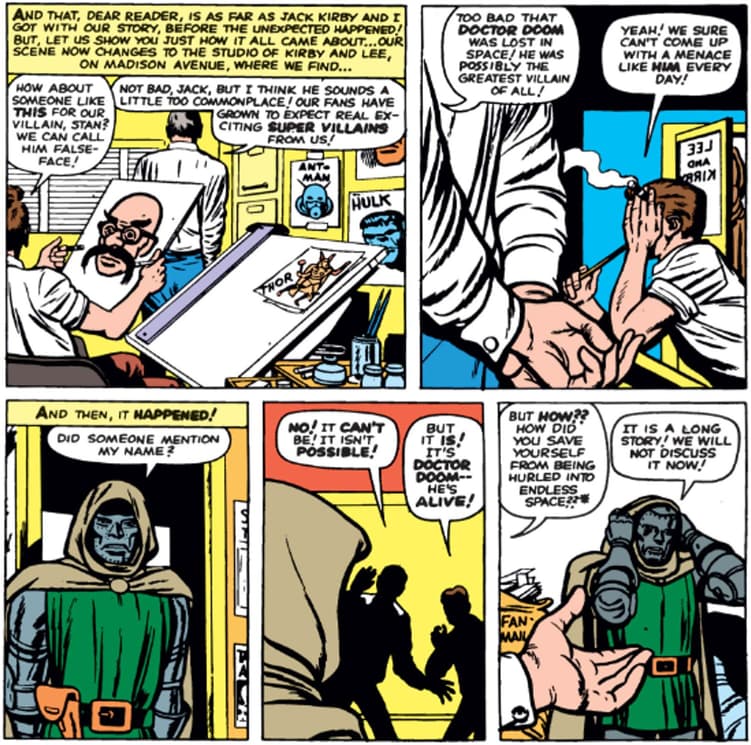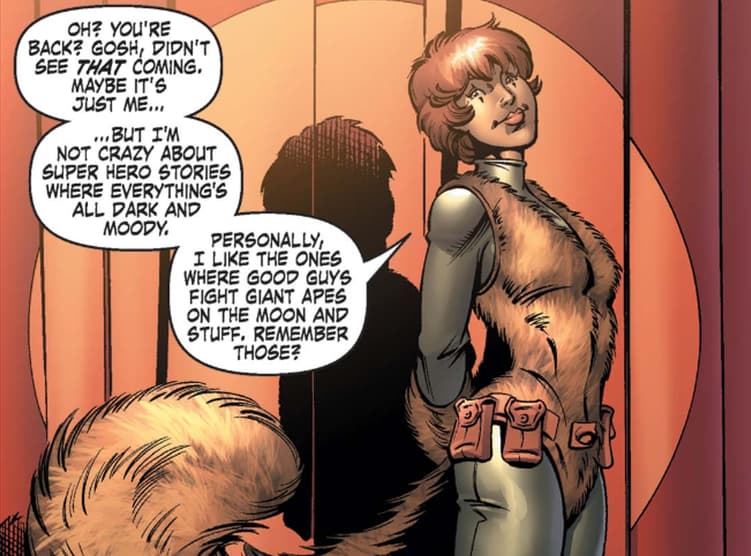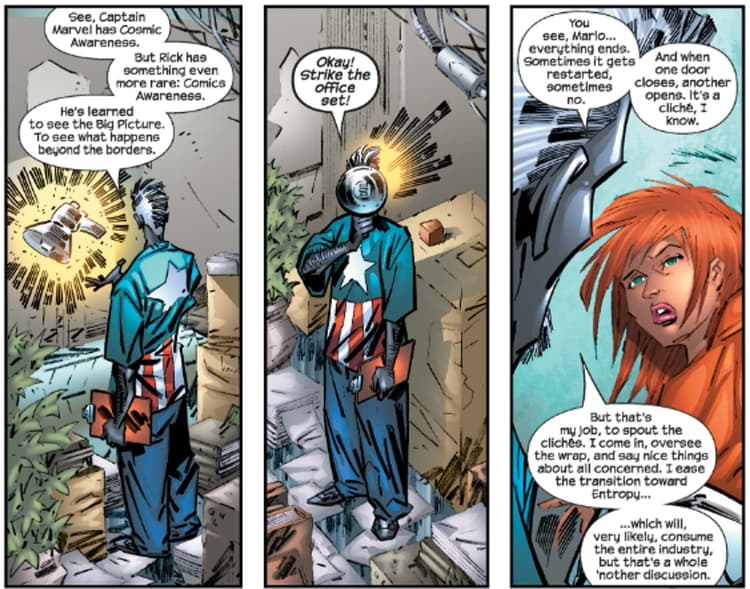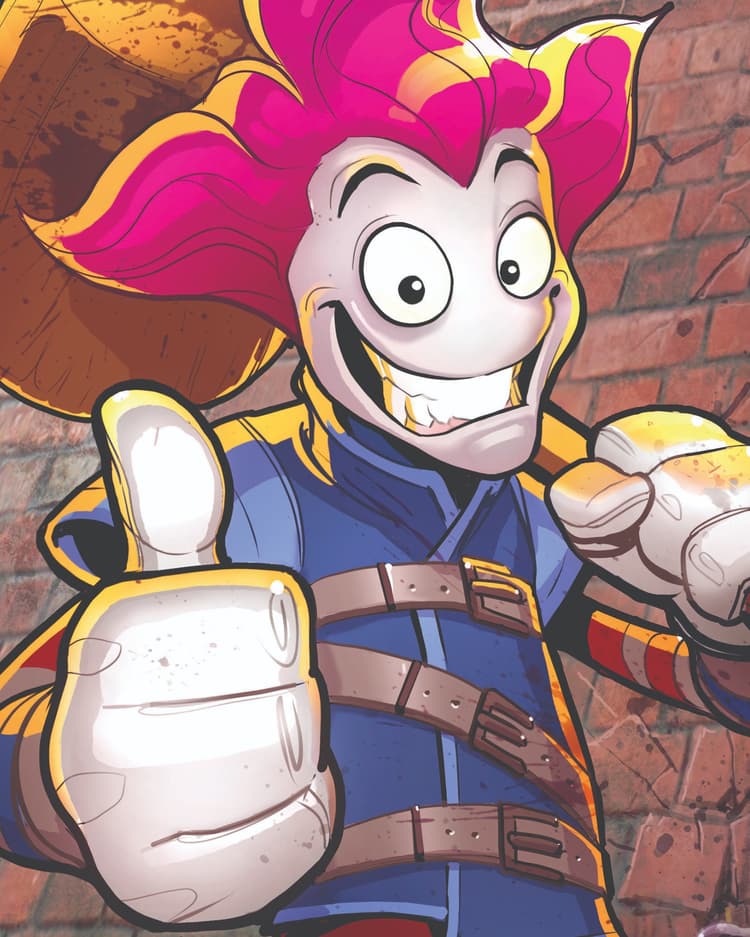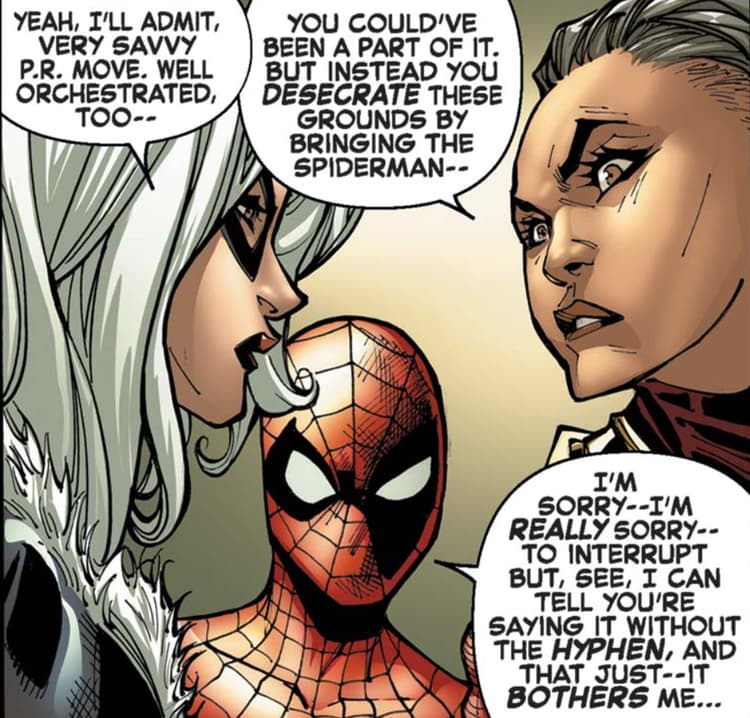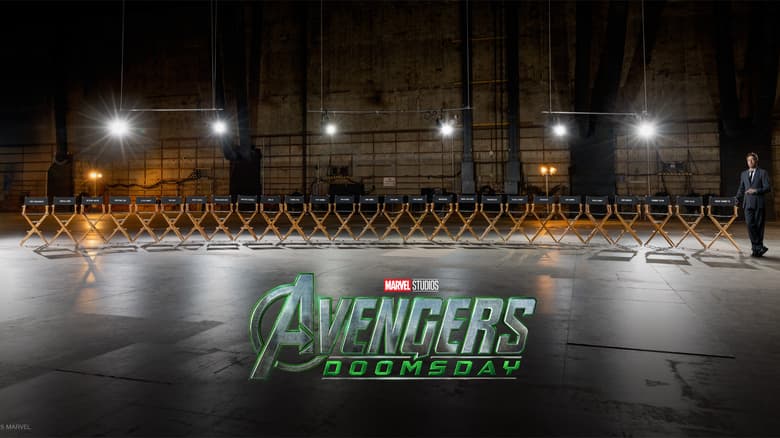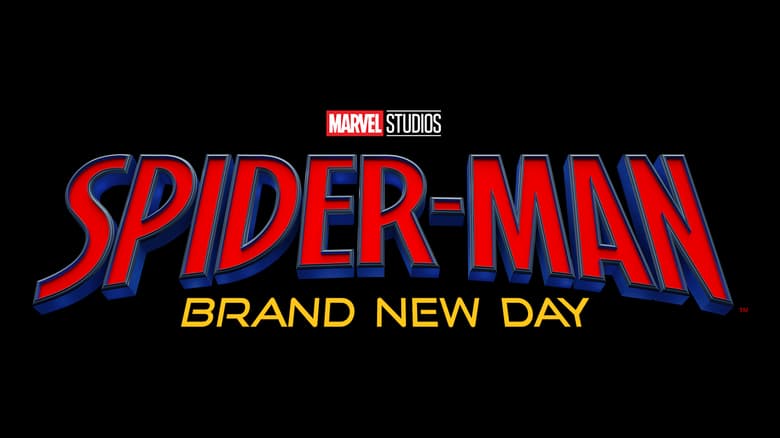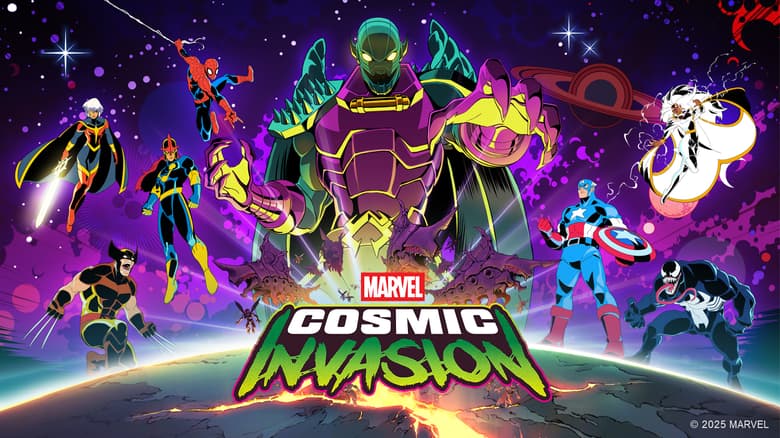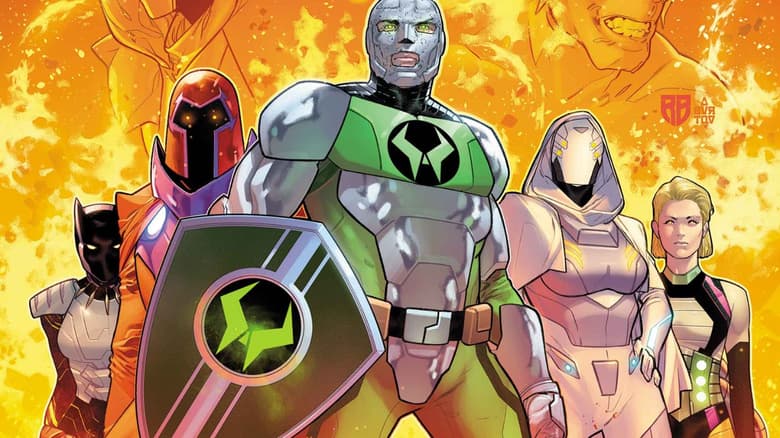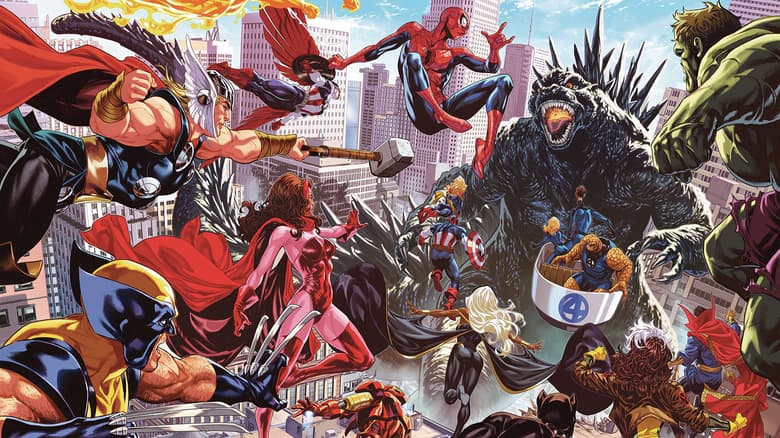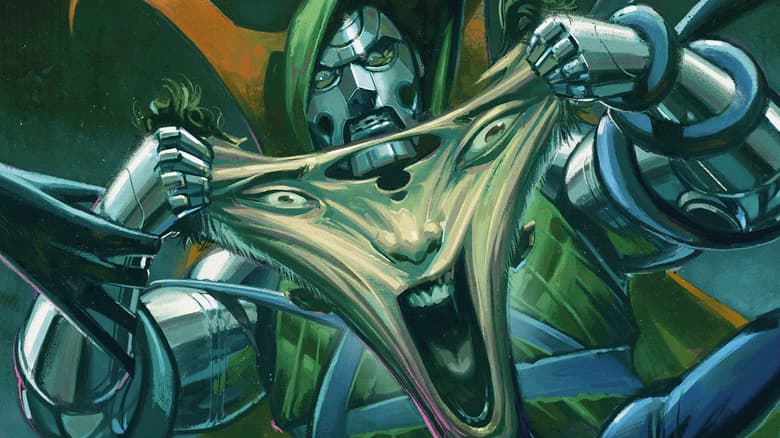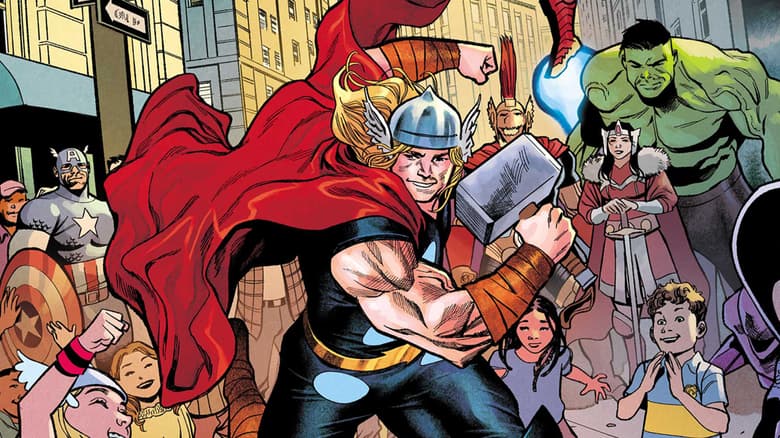Marvel Characters Who Break the Fourth Wall
From She-Hulk and Deadpool to Squirrel Girl and Slapstick, discover a few Marvel characters who routinely break the fourth wall and address the reader.
While most Marvel heroes and villains are content to stay focused on the goings-on of their own world, there are a handful of fan-favorite characters who have a tendency to break the fourth wall, unafraid to direct a self-aware wink to the reader to keep them on their toes. From heroes that make in-jokes to the reader and characters that are acutely aware they live within a comic book to circumstances where the rules of the comic book medium bend to suit the story, the Marvel Universe is home to beloved characters who flirt with the borders of their fictional world.
Here are all the major Marvel characters that have memorably shattered the fourth wall, bringing a new dimension to the Marvel Universe as they actively engage with readers and invite them to join in on the fun.
She-Hulk
She-Hulk is the first major Marvel super hero to overtly and consistently break the fourth wall. After she was created By Stan Lee and John Buscema in THE SAVAGE SHE-HULK (1980) #1, John Byrne took the character in a much more humorous direction with THE SENSATIONAL SHE-HULK (1989). This was apparent right from the cover of the debut issue, where Jennifer Walters threatened to destroy readers’ X-MEN comics if they didn’t check out her new series. This sardonic sense of humor was present within the book itself, as She-Hulk directly addressed the creative team while she balanced her life as a super hero and an attorney at law.
While She-Hulk’s appearances in other titles leave the fourth wall intact, she occasionally takes on the self-aware sensibilities that made Byrne’s run so memorable. Dan Slott and Juan Bobillo’s SHE-HULK (2004) returned to her fourth wall-breaking comical roots, as Jen delivered screwball comedy while trying to keep her personal life afloat. Though Jen hasn’t shattered the fourth wall with the same amount of regularity as she has in the past, it still is an important part of her comic book history.
Deadpool
Of all the Marvel characters to break the fourth wall, Deadpool is perhaps the one who takes advantage of its creative possibilities the most. Created by Fabian Nicieza and Rob Liefeld in NEW MUTANTS (1983) #98 as a formidable adversary for the super hero team, Deadpool has since gone on to become something of a super hero himself, albeit one operating with a morally ambiguous code of honor. Over time, Deadpool grew into a significantly more comedic character, but it wasn’t until Joe Kelly and Pete Woods’ acclaimed DEADPOOL (1997) run that the Merc with a Mouth began breaking the fourth wall.
In DEADPOOL (1997) #11, Wade Wilson was transported into a Spider-Man adventure by Stan Lee and John Romita Sr. from the pages of THE AMAZING SPIDER-MAN (1963) #47, where he called out the more puzzling elements of the story. Deadpool’s tendency to break the fourth wall became more overt in DEADPOOL (1997) #28, as he recalled the specific issue where he last encountered Bullseye. Moving forward, he leaned more into this level of self-awareness, and this hilarious trait quickly became one of his hallmarks.
Loki
As the Norse God of Mischief and Marvel's resident God of Stories, Thor’s brother Loki has a decidedly unique perspective on the Marvel Universe, including the true nature behind its existence. It was the devious trickster that first revealed to Deadpool that they were characters in a comic book, letting Wade Wilson know that the architect behind their world is “a man with a typewriter.” In DEADPOOL (1997) #37 by Christopher Priest, Jim Calafiore, and Michael McKone, Loki smugly grins at the reader as he unveils the shocking truth, while Deadpool appears unphased by the revelation.
In a subtler instance, Loki exhibited an impressive degree of self-awareness by defying the conventional bonds of the comic book medium – literally! During Kieron Gillen and Jamie McKelvie’s YOUNG AVENGERS (2013), an omnipotent extraterrestrial entity posing as Hulkling’s mother imprisoned him and Wiccan in a pocket dimension resembling comic book panels. Kid Loki came to the rescue, helping free the two heroes by moving between the confines of the paneling to make their escape across the printed page.
Gwenpool
Debuting at a time when Gwen Stacy of Earth-65 was saving the day as Ghost-Spider, Gwenpool brought her own zany perspective to the Marvel Universe in THE UNBELIEVABLE GWENPOOL (2016). Interestingly, Gwenpool is not a Multiversal variant of Wade Wilson or Gwen Stacy; she is actually Gwen Poole, a young woman claiming to be from a facsimile of the real world where Marvel heroes and villains exist in comics, television, and film. When she arrived in the Marvel Universe, Gwen used her vast knowledge of the world (based on her intense fandom) to become the mercenary Gwenpool, adopting a costume inspired by Deadpool.
Ever since she was created by Christopher Hastings, Heather Antos, Jordan D. White, and Chris Bachalo, Gwenpool has starred in a number of titles – including WEST COAST AVENGERS (2018) – while occasionally guest-starring in other heroes’ adventures. Gwen has teamed up with villains and heroes alike throughout her time in the Marvel Universe, while retaining awareness that she exists within the confines of a comic book. In addition to this metatextual knowledge, she often interacts with the paneling and word balloons as part of her wacky charm.
The Fantastic Four (and Friends)
The Fantastic Four has a surprising history with breaking the fourth wall, often with a sly wink at the reader in between all of their adventures through space and time. This history stretches as far back as Stan Lee and Jack Kirby’s landmark run. The Fantastic Four would occasionally answer their own letter column, responding to fan queries and defending their actions in past stories, while FANTASTIC FOUR (1961) #10 had Doctor Doom confront Lee and Kirby personally.
One of the most notable instances of the Fantastic Four breaking the fourth wall occurred in FANTASTIC FOUR ANNUAL (1963) #3, which centered on Reed Richards and Susan Storm’s wedding. At the end of the issue, Lee and Kirby themselves attempt to attend the wedding reception, only to be turned away at the door for not having invites. Paying this marital tradition forward, the FANTASTIC FOUR (1998) creative team of Chris Claremont, Salvador Larroca, and Art Thibert were later chastised by Lee and Kirby in FANTASTIC FOUR (1998) #27, as the world reacted to the apparent marriage of Susan Storm and Doctor Doom.
Squirrel Girl
Behind every great super hero is a great sidekick. The unstoppable Squirrel Girl and her sidekick Tippy-Toe are an effective team with a surprising track record against nominally superior opponents. Created by Will Murray and Steve Ditko in MARVEL SUPER-HEROES (1990) #2, Doreen Green boasts an impressive array of superhuman abilities. Thanks to her prehensile tail and ability to communicate directly with squirrels, she became a squirrel-themed super hero. With a sense of self-awareness about her off-kilter place in the Marvel Universe, Squirrel Girl and her rodent sidekick have broken the fourth wall in their more comedic comic book appearances.
From Squirrel Girl providing a running commentary to the readers to Tippy-Toe addressing creative teams from the character’s past, these metatextual moments are always played for laughs. Squirrel Girl took on a decidedly more comical tone when she joined the GREAT LAKES AVENGERS (2005), which resurfaced to varying levels moving forward, perhaps most notably during Ryan North and Erica Henderson’s run on THE UNBEATABLE SQUIRREL GIRL (2015).
Rick Jones
Depending on how you look at it, Rick Jones has a tendency to be at the right (or wrong) place at the exact right time. This distinction led to a burgeoning friendship with the Kree hero Mar-Vell, the original Captain Marvel, and carried on with Mar-Vell’s powerful son Genis-Vell. Thanks to his connection to Rick, the new Captain Marvel gained a greater sense of control over his Cosmic Awareness and gave Rick a level of insight that broke the fourth wall.
In the final issue of Peter David and Keith Giffen’s run on CAPTAIN MARVEL (2002), Rick reveals he has developed a tongue-in-cheek Comics Awareness in contrast to Genis’ Cosmic Awareness. Facing the omnipotent entity Eulogy, Rick used this Comics Awareness to goad the being into addressing all the loose plot ends left unresolved by the story’s abrupt ending. Ultimately, Rick and Marlo left the comic to enjoy their own happy ending. By the time Rick resurfaced in the Marvel Universe, however, all traces of his newfound awareness were gone.
Slapstick
Created by Len Kaminski and James Fry in THE AWESOME SLAPSTICK (1992) #1, Slapstick is perhaps one of the more obscure characters on this list. While out on a date at a local carnival, teenage class clown Steve Harmon had his physical form spread across 3741 dimensions when he was blasted by a strange form of energy. The Scientist Supreme of Dimension X helped Steve reform into a new, cartoonish body. Steve decided to use his newfound powers for good and took on the super hero moniker Slapstick.
Like Deadpool and She-Hulk, Slapstick has a prolific history in breaking the fourth wall with his manic and irreverent sense of humor. At the end of THE AWESOME SLAPSTICK miniseries, the clownish hero directly implored the readers for their support so his adventures could continue in an ongoing series. Though this petition was unsuccessful, Slapstick has turned up periodically in other titles, maintaining his wacky and self-aware comedic sensibilities.
Honorable Mention: Spider-Man
In many ways, Spider-Man is perhaps the most iconic super hero in the entire Marvel Universe. He has always possessed a wry, self-effacing sense of humor that is perfectly suited for a more unconventional perspective of his world. Though certainly not at the same level as, say, She-Hulk or Deadpool, Spider-Man has displayed his own subtler fourth wall-breaking moments across his extensive comic book history. With the friendly neighborhood super hero often dispensing offhand gags at a mile a minute, some of these passing jokes contain a self-aware wink to the reader.
Spider-Man has a tendency to fracture the fourth wall when he comments on the proper spelling of his name. Whenever a character neglects to include the hyphen in “Spider-Man,” the Web-Slinger is quick to correct them after noticing the metatextual spelling omission. The first instance of this appeared in THE AMAZING SPIDER-MAN (1963) #19 by Stan Lee and Steve Ditko. While not as fourth wall-shattering as calling out the creative team or recognizing their existence within a comic book, Spider-Man’s sense of humor extends into the realm of self-awareness on occasion, so he gets an honorable mention on this list.
You can grab these comics and more digitally or at your favorite local comic book shop. Be sure to ask your local shop about their current business policies to observe social distancing or other services they may offer, including holding or creating pull lists, curbside pick-ups, special deliveries, and other options to accommodate. Find and support your local comic book shop at ComicShopLocator.com or by visiting Marvel.com/LoveComicShops.
For digital comics, all purchases in the Marvel Comics app can be read on iPhone®, iPad® and select Android™ devices! Our smart-paneling feature provides an intuitive reader experience, ideal for all types of mobile device and tablet users! Download the app on iOS and Android now!
The Hype Box
Can’t-miss news and updates from across the Marvel Universe!
